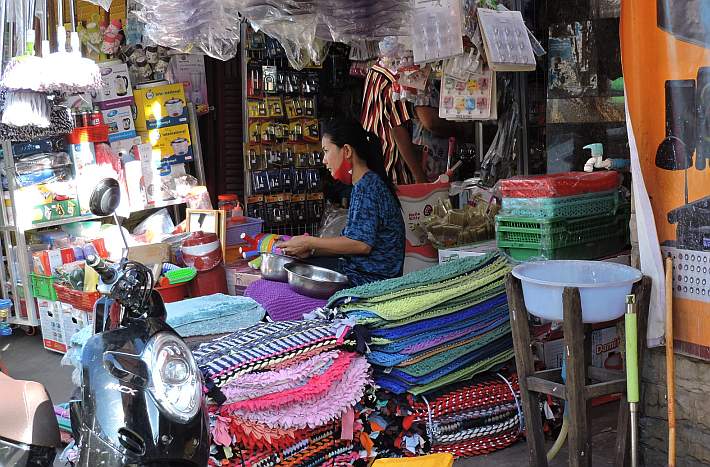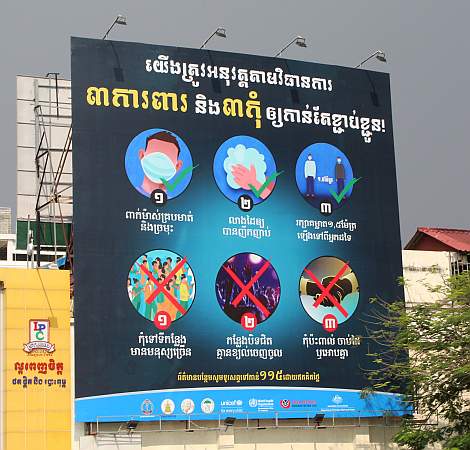
Here is what a large anti-COVID-19 billboard looks like in Cambodia. You can probably recognize what are called here “the three do-s” and “the three don’t-s.” Just the Khmer script is different.
Charlie Dittmeier's Home Page

Here is what a large anti-COVID-19 billboard looks like in Cambodia. You can probably recognize what are called here “the three do-s” and “the three don’t-s.” Just the Khmer script is different.
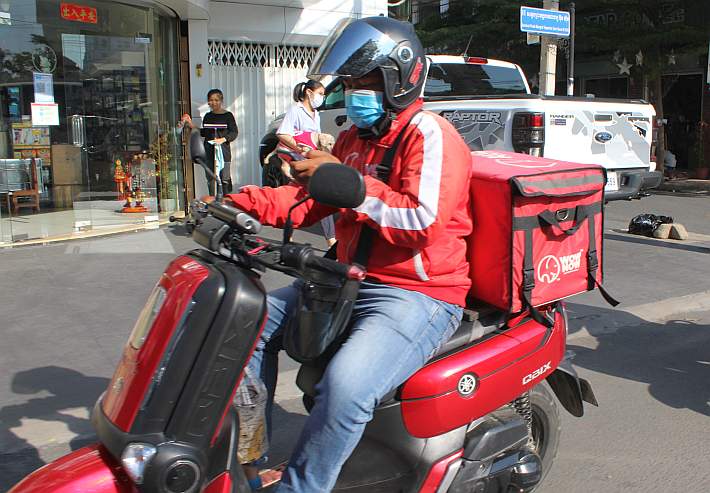
When large areas of Phnom Penh were locked down and restaurants were closed or forbidden to have eat-in diners, the food delivery services bloomed all over the city. And very quickly these drivers developed their own ethos: anything goes. Cambodia has never been a nation to follow the discipline of careful driving and now these delivery people take driving arrogance to a new level. There is no law they do not flout, and since there is no traffic law enforcement, they have established themselves as a dangerous, separate entity in the life of the city–driving too fast, not stopping for lights, driving in the opposite lanes, watching their phones to find the delivery address, cutting through and around normal traffic. There is no limit.
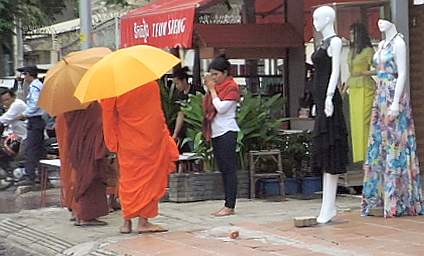
Hundreds of monks are out on the streets every morning to beg alms for themselves and for the poor people they serve. Click here to see their encounters with the devout Buddhists.
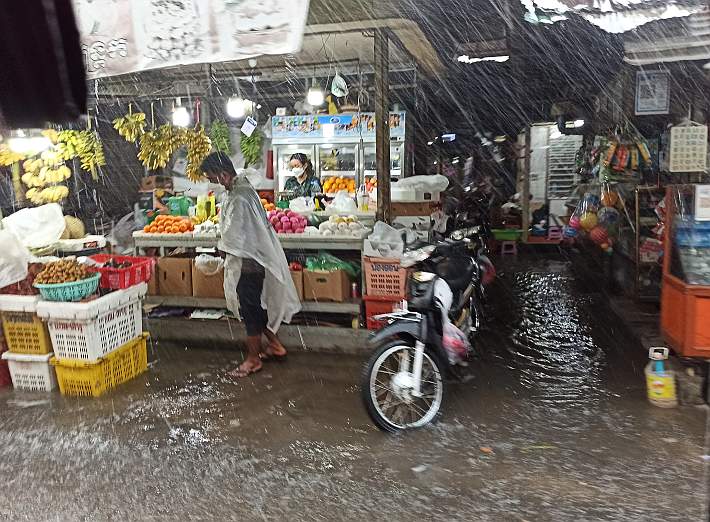
Monks are a large and prominent part of Cambodian culture. There are many, many wats throughout the country, and there are thousands of monks. There are men who are monks for one week; there are men who are monks for many decades. There are monks who are educated; there are monks who have little school learning. There are elderly monks; there are young boys who are studying to become monks.
Here are some pictures of young boys who are part of the monk society. They live in the wats (pagodas) and go with the monks as they make their rounds begging each day. In this era of concern about the sexual abuse of children, the presence of the young boys living with the adult monks seems strange. There is very little abuse mentioned but it may be that the culture covers it up and does not talk about it if it happens.
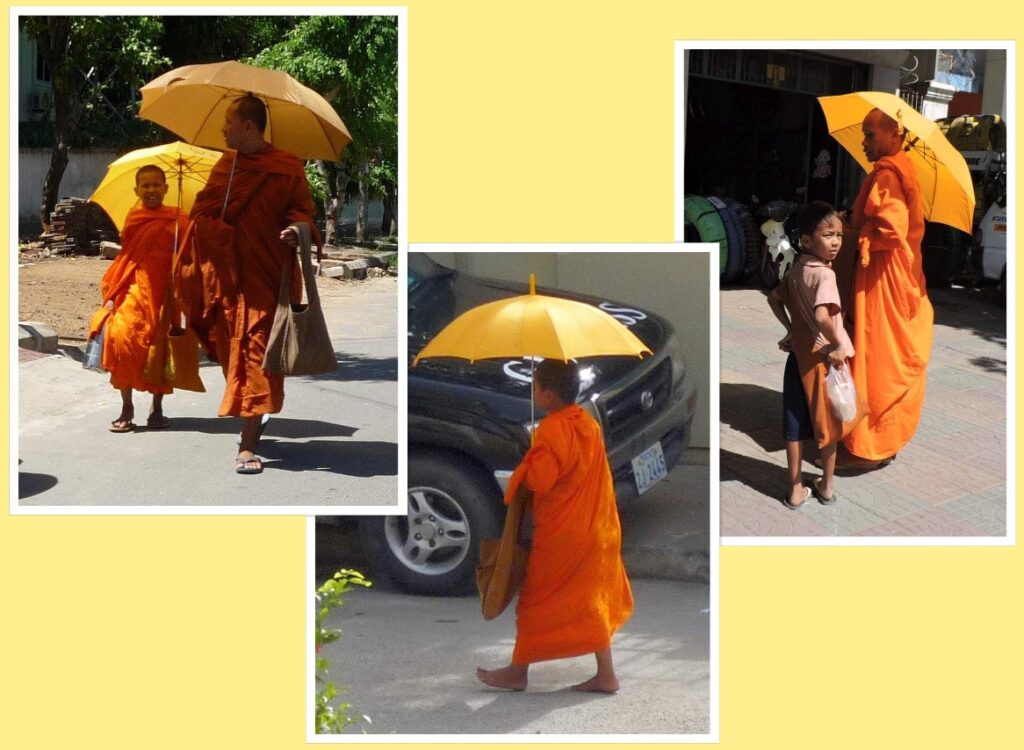

On 1 July Prime Minister Hun Sen spoke to the kingdom by Zoom for more than two hours . Some of his points:
We’ll see if his admonitions about anti-Covid-19 precautions are heeded.
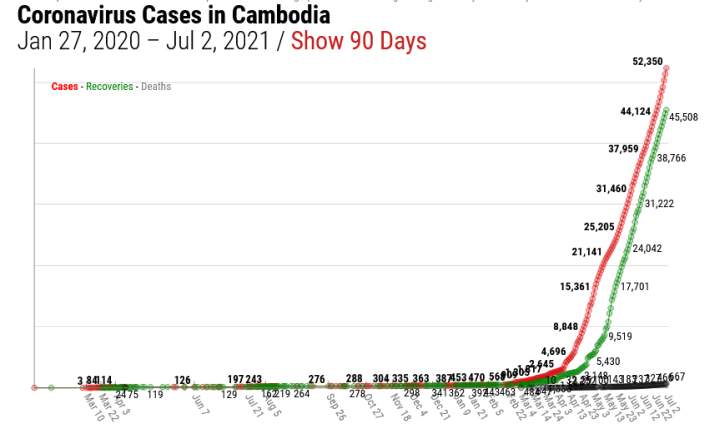
Things are not looking good these days in Cambodia in connection with Covid-19. The last three days have seen about 1,000 new infections per day with an accompanying increase in the number of Covid-related deaths. [This graphic comes from the VOD website.]

A lot of things are different now because of Covid-19. The big wet markets around the city have become hotbeds of infections so they have been shut down. All those selling inside the markets have now moved out onto the street. This woman sells to two different groups, those wanting flowers and those wanting fruits.
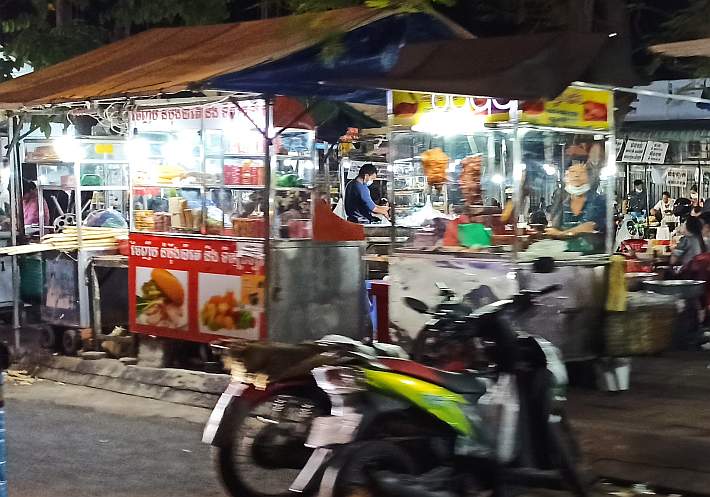
A woman stands at her cooked meat stall outside a big market in Phnom Penh. Normally this block of food stalls is crowded but with Covid-19 alarming people, the woman probably waits more than she used to for hungry customers.
